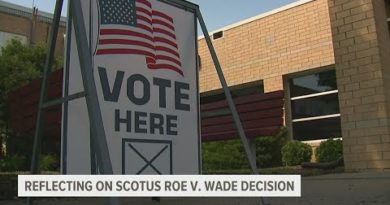Starting a Business After Your Divorce
A person who wants to get divorced should attempt to start the business after the divorce is final. If this is not possible, the person should talk with a business attorney and a Birmingham divorce attorney about the ramifications of starting the business during the divorce. One of the primary issues that the court will examine is whether the founder’s spouse contributes effort, time, and money to the business.
It is a good idea for the founder of the business to come to an understanding with their spouse about how the parties will be involved with the business before, during, and after an uncontested divorce in Jefferson County. The spouse may want to help found the business, but later allow for a clean exit from it with an arranged buyout. The founder should work with their own local Birmingham or Trussville divorce attorney to draft a contract regarding the matter. The spouse should then have their attorney, a different person, look over the contract and see if it is fair to them.
Even if the spouses are getting an uncontested no-fault divorce, they should not share an attorney to handle this matter. The parties have different, conflicting interests. The parties can sign one contract or a set of contracts as concerns arise.
Starting a business can involve many steps, including having a spouse cosign for a business loan and naming the spouse as a surety for the business’s contracts. Starting a business during a divorce can affect how the parents care for the children, as in how they split their time to parent. The business can also affect what assets and debts the parties will retain and the parties’ modes of transportation if it is necessary to purchase and use vehicles for business operations.
Spouses who are getting an amicable divorce should address the issue of a new business in the Marital Settlement Agreement (MSA). They should present the court with a signed agreement that explains:
- The nature of the business
- Each spouse’s involvement in the business
- Each spouse’s financial contribution to the business. This section should show whether the funding came from monies earned during the course of the marriage, which are marital property, or monies acquired before the marriage or received from an inheritance at any point in time, which are separate property.
- The debts of the business, and how the spouses split the debt, if this occurred. The MSA can contain details regarding loans from financial institutions.
- The contracts the business is entering into and each spouse’s responsibilities in fulfilling these contracts.
- What type of goodwill the business expects to generate from its dealings in the community and general operations and how each spouse contributes to growing goodwill.
- Any particular concerns the business may experience if one spouse exits the business. For example, if one party holds a license that the business needs to operate, the MSA should cover how this issue will be addressed.
- Information on how minor children are involved in or affected by the business, such as teens who intern or work at the business. The MSA should address how this may affect custody arrangements.
- Major assets that the couple acquired for the business, such as vehicles, real property, and expensive equipment. The MSA should look at how the couple will divide these assets after divorce.
- How the couple will split the tax payments for the business until the Madison County divorce is final.
It is particularly problematic for an individual involved in a contested or an at fault divorce to start a business during the divorce. The person’s spouse can take retaliatory action to cause problems for the business. This could lead to the business failing. Even if the founder is later able to recover the money, they will experience hardship and stress from having to pursue a lawsuit and collect judgment.
A person who plans to find a business after a divorce is final should take care not to hide assets for the business from their spouse. This is fraudulent behavior that could trigger fines and sanctions from the court. You should talk to a local divorce lawyer before starting such a business to ensure everything is done correctly and there are no issues down the road.
Attorney Steven A. Harris regularly blogs in the areas of family law, bankruptcy, and real estate closings on this website. He is always available in any of the firm’s offices or by phone anytime for a consultation. Mr. Harris tries to provide informative information to the public in easily digestible formats. Hopefully you enjoyed this article and feel free to supply any feedback. We appreciate our readers and love to hear from you!
Sharing is caring:







